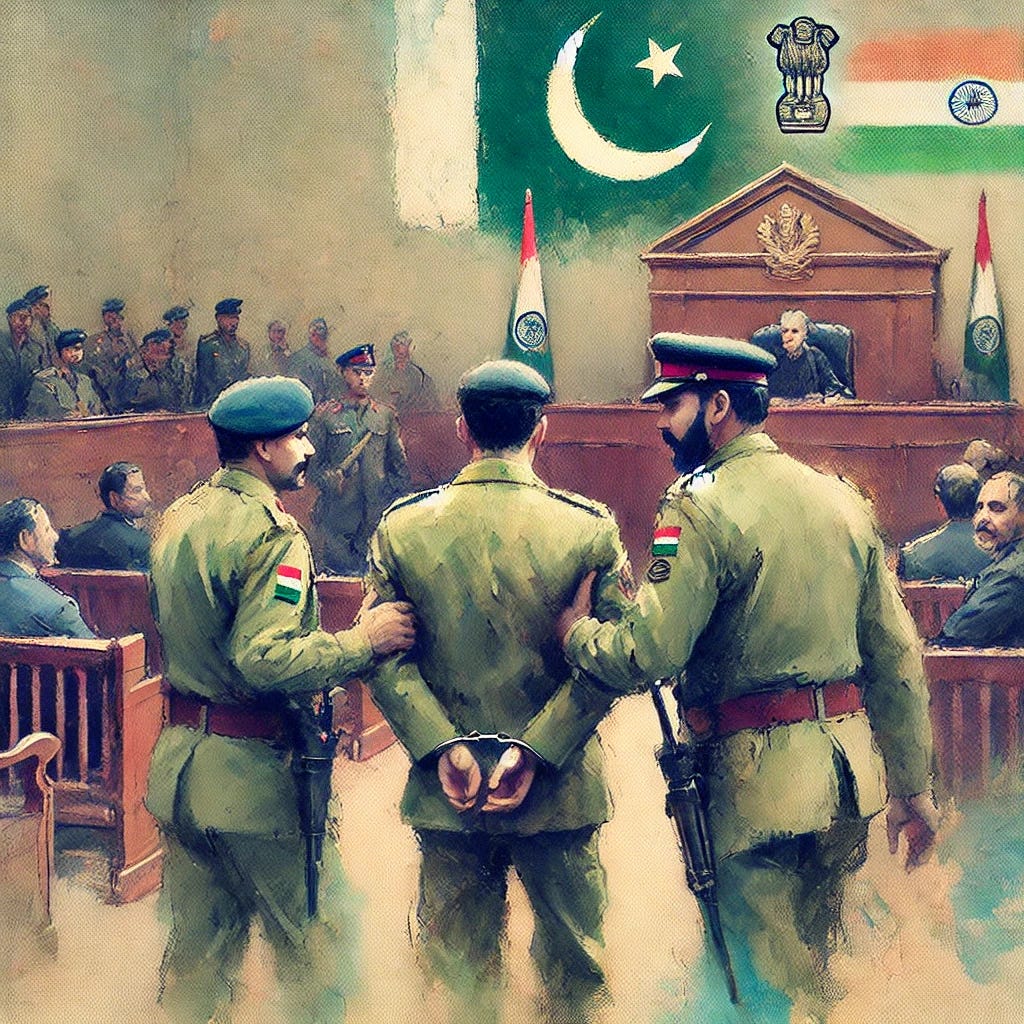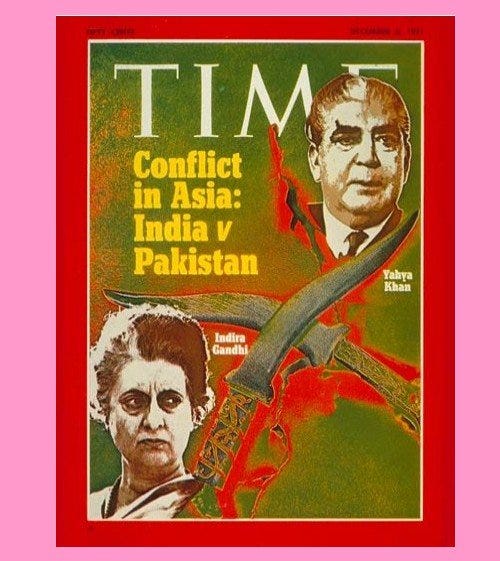Arrest: A Groundbreaking Event
On 12th August 2024, Pakistan was shaken by a landmark development: the dramatic arrest of Lieutenant-General Faiz Hameed, the former Chief of the Inter-Services Intelligence (ISI). In an unprecedented move, the Pakistani military took into custody the man who once wielded immense power as the head of the nation's most formidable intelligence agency. This is the first time in the country's history that a former ISI chief has been arrested and subjected to court martial proceedings. The charges against Hameed are as explosive as they are serious, involving his alleged role in the Top City housing scheme scandal during his tenure, as well as multiple violations of the Pakistan Army Act following his retirement—violations brought to light by a damning Pakistan Supreme Court verdict earlier this year. This arrest marks a significant moment, with reverberations likely to be felt across Pakistan’s military and political landscape.
Official Press Release
The former chief of the Inter-Services Intelligence (ISI), Lieutenant-General (retd) Faiz Hameed, was taken into military custody as part of court martial proceedings under the Pakistan Army Act, according to a statement by the Inter-Services Public Relations (ISPR) on Monday. The investigation into Hameed's actions was prompted by complaints related to the Top City housing scheme scandal, following directives from the Supreme Court of Pakistan. "Complying with the orders of Supreme Court of Pakistan, a detailed court of inquiry was undertaken by Pakistan Army to ascertain correctness of complaints in Top City Case made against Lt-Gen (retd) Faiz Hameed," the military's media wing stated. The inquiry confirmed multiple violations of the Pakistan Army Act both during and after Hameed's service, leading to the initiation of disciplinary actions. "The process of Field General Court Martial has been initiated, and Lt-Gen (retd) Faiz Hameed has been taken into military custody," the statement added.
Charges and Allegations: Serious Breaches of Trust
The charges against Faiz Hameed are severe and multifaceted. The Top City housing scheme scandal, in which Hameed is allegedly involved, has been a significant point of controversy, raising questions about corruption and misuse of power within the military's ranks. Additionally, his post-retirement activities, which purportedly violated the Pakistan Army Act, have further tarnished his once-formidable reputation. The Supreme Court of Pakistan had earlier emphasised the gravity of these allegations, highlighting the potential damage they could inflict on the credibility of the country's institutions if substantiated.
Pak Supreme Court’s Involvement and Investigation
The gravity of the allegations prompted the Supreme Court of Pakistan to order a formal inquiry into the matter. The court, led by a three-judge bench including Chief Justice Qazi Faiz Isa, observed that the allegations against Faiz Hameed were of a serious nature that could potentially harm the reputation of Pakistan’s military institutions. The court emphasized the importance of addressing these accusations transparently and directed the Ministry of Defence to cooperate fully with the investigation. This marked the first formal inquiry against General Faiz, who had resigned from his position in November 2022, months before his official retirement date, amidst rising controversies related to his tenure as ISI Chief.
The Top City Case: Allegations and Inquiry
In April 2024, pursuant to the Supreme Court order, the Pakistan Army initiated a high-level inquiry to investigate serious allegations against Lieutenant-General (retd) Faiz Hameed, the former Director General of the Inter-Services Intelligence (ISI). The inquiry, led by a major general, was launched in response to accusations that Hameed misused his authority during his tenure as the head of ISI. These allegations came to light following a petition filed by Moeez Ahmed Khan, the owner of Top City, in the Supreme Court of Pakistan. The petition claimed that in May 2017, under Hameed's orders, ISI officials raided Khan’s office and residence, seizing valuables, including gold and cash, and later extorting additional funds from him.
Career and Controversies: A Mixed Legacy
Faiz Hameed's career has been marked by both notable achievements and significant controversies. As the head of the ISI from 2019 to 2021, he was regarded as one of Pakistan's most influential figures, particularly in national security and intelligence operations. However, his tenure was also marred by contentious incidents, including his involvement in the Faizabad Dharna case, which brought Islamabad to a standstill in 2017, and accusations from former Prime Minister Nawaz Sharif, who claimed that General Hameed, alongside General Bajwa, the then Pakistan Army Chief, orchestrated his removal through a Supreme Court order. General Hameed's visit to Kabul in September 2021, shortly after the Taliban's takeover, further highlighted his controversial role, as it was seen as a significant demonstration of Pakistan's influence over the Taliban.
Army Career— Rapid Ascent
Lieutenant General Faiz Hameed's military career is marked by significant achievements and controversies. Born in the village of Latifal, Chakwal, he joined the Pakistan Military Academy in 1987 and was commissioned into the Baloch Regiment, where he began his ascent through the military ranks. Over the years, Hameed held several key positions, including serving as the General Officer Commanding (GOC) of the 16th Infantry Division, head of ISI's Counter Intelligence Wing, Adjutant General at the GHQ in Rawalpindi, and ultimately as the Director-General of the Inter-Services Intelligence (ISI) from June 2019 to October 2021. His tenure as ISI chief was particularly notable, as he played a pivotal role in resolving the Faizabad dharna in 2017 and was involved in Pakistan's strategic moves during the Taliban's takeover of Afghanistan in 2021.
Dabbling in Politics, while in OG
Promoted to Major General in February 2015 and later to Lieutenant General in April 2019, Hameed's career also saw him serve as Corps Commander in Peshawar and Bahawalpur, with the latter being his final posting before his premature retirement in November 2022. His military journey, while distinguished by key operational roles, was also marred by controversies, including allegations of manipulating judicial proceedings in the Panama Papers case involving former Prime Minister Nawaz Sharif. Despite his early retirement, Hameed's legacy remains complex, shaped by both his strategic contributions to Pakistan's military intelligence and the controversies that shadowed his career.
Institutional Implications for Pak Army: A Test of Accountability
The arrest and court martial of General Faiz Hameed carry significant implications for Pakistan's key institutions.
Military: This action sends a strong message about the military's readiness to hold even its highest-ranking officials accountable, potentially reshaping public perceptions of institutional integrity and transparency.
Intelligence Services: As a former ISI chief, General Hameed's arrest is likely to reverberate within Pakistan's intelligence community, affecting its internal dynamics and possibly leading to increased scrutiny of the agency's activities.
Judiciary: The Supreme Court's involvement in initiating the investigation underscores the judiciary's growing influence in high-profile cases involving powerful figures, suggesting a shift towards a more assertive judicial role in Pakistan.
Government: This development could alter the delicate balance of power between Pakistan's civilian government and its military, with potential repercussions for civil-military relations.
Potential Repercussions: Far-Reaching Consequences
The proceedings against retired General Faiz Hameed could have enduring impacts on Pakistan's political and military landscape. The case may establish a precedent for heightened scrutiny of military and intelligence officials, both during and after their service, potentially fostering a more transparent and accountable governance structure. Moreover, while the court martial proceedings are conducted in private, any revelations that emerge could illuminate past operations or decisions made during General Hameed's tenure as ISI Chief, with potential implications for Pakistan's international relations, particularly in its dealings with India and the Taliban.
Implications from the Indian Perspective
The ongoing court-martial proceedings against retired General Faiz Hameed are unlikely to alter the ISI's entrenched organisational stance against India. In fact, recent activities indicate that the ISI has escalated its interference, extending its influence beyond the traditionally restive Kashmir Valley into the Jammu region, targeting Indian military and paramilitary personnel. Despite India's counterintelligence successes, reportedly led by the Research and Analysis Wing (R&AW) within Pakistan's mainland, which have effectively neutralised Kashmiri terrorists and pro-Khalistan militants operating under Pakistan's protection, it would be naive for India to lower its guard simply because of these internal disciplinary actions against a former ISI Chief. The deep-seated anti-India sentiment within the ISI is institutional rather than individual, and the agency's aggressive posturing is likely to continue unabated.
Highlight Pak Atrocities in Balochistan
Furthermore, as India and Pakistan approach their respective Independence Days, on 14th and 15th August respectively, there is an opportunity for India to recalibrate its narrative, particularly concerning Pakistan's ongoing human rights violations in Balochistan. Rather than getting entangled too deeply in the internal issues of Bangladesh or Palestine, India's Ministry of External Affairs and civil society should focus on highlighting Pakistan's unlawful annexation and brutal suppression in Balochistan. By doing so, India can counter Pakistan's perennial rhetoric on Kashmir, both domestically and on the international stage1. It is crucial for India to maintain a strategic focus on exposing Pakistan's internal contradictions and human rights abuses, ensuring that the spotlight remains firmly on Islamabad's actions. While other global issues may be significant from a human rights perspective, they do not have the same direct geo-strategic impact on India's national security. By prioritising its narrative against Pakistan's misconduct, India can better safeguard its interests and counteract Pakistan's aggressive posturing in the region.
Summing Up: A Watershed Moment for Pakistan but India Should Remain on Alert
The arrest and court martial of General Faiz Hameed represent a watershed moment in Pakistan's history, potentially signalling a move towards greater accountability within the country's military and intelligence establishments. This development challenges the traditional autonomy these institutions have long enjoyed. For India, the event is particularly significant, as it may trigger shifts in Pakistan's internal dynamics with potential repercussions for regional security and the broader geopolitical environment. However, this should not lead to complacency. It is essential for India to remain vigilant and proactive, as there is no indication that the ISI will soften its operations in Jammu and Kashmir. The agency's entrenched stance and activities are likely to persist, necessitating continued caution and strategic focus from India to safeguard its national security interests. Whether this action leads to lasting systemic changes in Pakistan or remains a singular event in its complex political and military narrative remains to be seen, but India's need for vigilance and action is clear.








A write up that a veteran Washington Post correspondent will envy.
A lay man view is that it changes nothing for India , ISI as an institution and its goals remain unchanged. Hope BJP nationalists don’t try to jump on this band wagon.
This is only and completely Pak Army personnel rivalry brewing for the last two years. Long and short is Imran and Faiz had agreed to rub each other’s back where Hamid will become Army Chief and Imran to be assured tenants years of reign. And further more , once Munir’s name surfaced , Hamid foolishly tried to paint him as Shia, and even went to the extent of investigating his visits to Iran if there were any or how many. Even Saudi’s were alerted about Munir being a risk.
Once Munir’s elevation to Army Chief was announced , Hamid knew that his game is over . He resigned with General Bajwa same day. But little did he know , his goose was cooked.
It is just Army Chief ‘s consolidation of his powers and warning to closet critics of Munir.
My $0,02
Best Regards